Best California Trips for 2023 Spring, Summer, Fall & Winter
Starting off a new year has got me thinking about seasons, and although you may not think of California as having 4 full seasons, there are unique spots in this state that truly shine in certain parts of the year. I love thinking about where the upcoming year’s adventures will take me and begin to plan out trips. For anyone in California or looking to visit the Golden State in 2023, here are several trip ideas for the coming year, each perfect a particular season.
Vernal Fall along Yosemite’s Mist Trail during Spring
Yosemite Falls seen from the Pohono Trail during Spring
Chilnualna Falls in Yosemite National Park during Spring
Spring in Yosemite National Park
Yosemite National Park is certainly beautiful year round, but in Spring as the snowpack begins to melt in the Sierra Nevada, the waterfalls here really show off. There are an abundance of impressive waterfalls in this park, all of which would be visitors’ primary focus if they were placed elsewhere in the world. As you stroll along the Yosemite Valley boardwalks through the lush meadows blooming with wildflowers, you’ll be surrounded by towering granite cliffs with roaring plumes of water crashing down to the valley floor.
Among the valley favorites during Spring are Yosemite Falls (the tallest waterfall in North America), Ribbon Fall (the tallest single drop waterfall in North America), and Bridalveil Fall (the iconic waterfall opposite from El Capitan seen from Tunnel View and Valley View). Springtime is also the perfect time to hike the Mist Trail. This incredible 8 mile round trip hike with 2000 ft in elevation will take you up aside the Merced River as it crashes down over Vernal Fall and Nevada Fall. There are sections of this trail where it’s encouraged to wear a rain poncho because of the intense “mist” you’ll encounter. Other Yosemite waterfall highlights are The Cascades, Wildcat Falls, Foresta Falls, and Chilnualna Falls.
For more information on Yosemite National Park and its many waterfalls, check out my full Yosemite section here.
Limekiln State Park in Big Sur during Summer
McWay Falls in Big Sur during Summer
Bixby Creek Bridge in Big Sur during Summer
Summer in Big Sur
It’s hard to imagine a Summer in California without spending time on the coast. Big Sur shows off some of the most magnificent coastline in the whole state…in fact, people travel from all over just to soak in these magnificent views and breathe in the fresh ocean breeze.
As you drive along the winding Highway 1, you’ll find yourself pulling off at the numerous overlooks every mile or so, and they are all spectacular. However, there are several viewpoints and activities that are can’t-misses in my opinion: watching the sun set across Bixby Creek Bridge, rock hopping at Garrapata State Park, finding shade under the coastal redwoods at Limekiln State Park, and watching McWay Falls pour into the Pacific. If you’re looking for a wonderfully unique stay along this coastline, definitely consider Treebones Resort for a glamping experience unlike anything else.
For more information on Big Sur, check out my full Big Sur section here.
Kings Creek Meadow in Lassen Volcanic National Park during Summer
Bumpass Hell at Lassen Volcanic National Park in Summer
Lassen Peak reflected in Lake Helen at sunrise during Summer
Summer in Lassen Volcanic National Park
As the Summer heatwave begins to hit the west coast, higher altitudes bring cooler temps. Up in the mountains in the northern part of the state you’ll find one of the nation’s most underrated national parks. By early Summer, the main thoroughfares in Lassen Volcanic National Park open up once the snow is finally cleared. This park is often considered the Yellowstone of California due to its geothermal activity.
If you’re looking to see some of this activity, both Sulphur Works and Bumpass Hell offer up-close views of bubbling mudpots and fumaroles, some of which are the hottest and largest in the world. You can also hike the 10 mile round trip trail to the top of Lassen Peak, which is the largest plug dome volcano in the world. However, if you’re not up for the 2000 feet in elevation gain it’ll take to reach the top, you can just enjoy the the views of this massive peak in the reflective waters of Lake Helen or Manzanita Lake.
For more information on Lassen Volcanic National Park, check out my full Lassen section here.
Fall foliage at Rock Creek Lake in the Eastern Sierra
Fall foliage at North Lake near Aspendell in the Eastern Sierra
McGee Creek Fall foliage in the Eastern Sierra
Fall in the Eastern Sierra
If you’re hoping to soak in the golden hues of Autumn, look no further than the eastern slope of the Sierra Nevada Mountains in the Inyo & Mono Counties. Lovingly referred to as the Eastern Sierra, you can discover numerous Fall foliage spots along the scenic drive up Highway 395.
There are so many areas to highlight, but a few of my must-stops every year are North Lake, Bishop Creek, Pine Creek Canyon, Rock Creek Lake, June Lake Loop, Intake Two, and Convict Lake. These excursions off the main the highway up into the mountains are blanketed with quaking aspen tree groves which radiate in lime greens, golds, and crimson reds every September and October.
For more information on the Eastern Sierra Fall foliage, check out my full Eastern Sierra section here.
Yosemite’s Firefall on Horsetail Fall during Winter
Yosemite Valley seen from Tunnel View during Winter
Mirror Lake in Yosemite National Park during WInter
Winter in Yosemite Valley
If you’re looking for a snowy winter wonderland, my go-to is definitely Yosemite Valley. Seeing the snow-capped peaks of El Capitan and Half Dome reflected in the mirrored waters of the Merced is a heavenly scene. It’s required to always carry chains in your vehicle during Winter months, but unlike the higher elevations in the park, the roads in the valley often don’t require use of chains or snow tires, making it easily accessible for most vehicles via Highway 140.
There are so many wonderful activities during the snowy season in Yosemite. Some of my favorites are hiking to the Vernal Fall Footbridge, skating at the Curry Village ice rink, hiking to Mirror Lake, and cozying up by the massive fireplace at the historic Awhahnee Hotel.
For most of the snowy season, the crowds are minimal in Yosemite National Park. However, for a couple weeks in February each year, nature lovers and photographers from all over flock to the valley for a chance to witness Firefall. This natural phenomenon occurs when the last rays of the setting sun perfectly align with Horsetail Fall, lighting up the water and giving the illusion of flames falling down the side of El Capitan. If you don’t mind the crowds, this is quite a spectacular show.
For more information on Yosemite National Park during Winter, check out my full Winter in Yosemite blog post here.
Zabriskie Point in Death Valley National Park during Winter
Temporary lake at Badwater Basin in Winter
Mesquite Flat Sand Dunes at Death Valley during Winter
Winter in Death Valley National Park
There’s another national park in California that is perfect for a wintertime road trip, and it may not be what you’d expect. The temperatures at Death Valley National Park are typically far too hot most of the year, but by November and December the weather is ideal to enjoy this unique landscape.
Some of my favorite Death Valley highlights during this season are enjoying a sunrise at Zabriskie Point, hiking to Darwin Falls, and taking a sunset stroll along the Mesquite Flat Sand Dunes. And if there’s been a recent rain in the Amargosa Mountain Range, you may just luck out and see a temporary lake form at Badwater Basin, the lowest point in North America at 282 feet below sea level.
For more information on Death Valley National Park, check out my full Death Valley section here.
Emerald Lake in Lassen Volcanic National Park during Summer
Know Before You Go
• Please remember to take only pictures and leave only footprints. Pack out everything you pack in and stay on the designated paths. If you’re not familiar with the Leave No Trace Principles consider familiarizing yourself with them before your trip.
• During snowy months, make sure bring tire chains with you. At any point, they may be required depending the current weather and road conditions. Even in Death Valley, there are highways at higher elevations where snow and ice can be present.
• Always plan ahead and check road conditions before traveleing in all seasons. Rock falls, mudslides, and weather often cause closures to each of the locations listed in this post.
• Entrance fees are required at all National Parks and several California State Parks. Make sure to purchase an America the Beautiful Annual Pass prior to visiting National Parks, or be prepared to purchase a day pass when you visit.
• Make sure to check the NPS website for up-to-date park reservation information. Most national parks do not require reservations, however advanced reservations are required at some parks during the peak tourism seasons. For example, Yosemite will require reservations for the 2023 Firefall season, which you’ll be able to purchase on Recreation.gov.
• If you’re thinking of planning a trip to see Firefall in Yosemite, know that it is not a guarantee that you will witness this natural phenomenon. Horsetail Fall can dry up if there hasn’t been sufficient precipitation and clouds often roll in at sunset, blocking the needed sunlight for the water to light up like fire.
2021 Firefall in Yosemite National Park
In Summary
Thanks so much for joining me this week. For a virtual visit to these seasonal California road trips, make sure to check out the Behind the Blog video at the top of this post, or watch it on YouTube here. Until next week, I hope you find adventure and encouragement wherever you go.
The brink of Nevada Fall during Spring in Yosemite National Park
If you enjoyed this post, you might also like…
About Me
I’m Dawn Marie, a travel and lifestyle blogger based out of Southern California. With in-depth articles, travel guides, and reviews on hotels & products, I seek to share my journeys to help you plan for your own. My adventures take me all over California, the western United States, and around the globe...and every Monday I post new content here, including a comprehensive blog post and YouTube video.
Search the Blog
Featured Posts
Etsy Shop
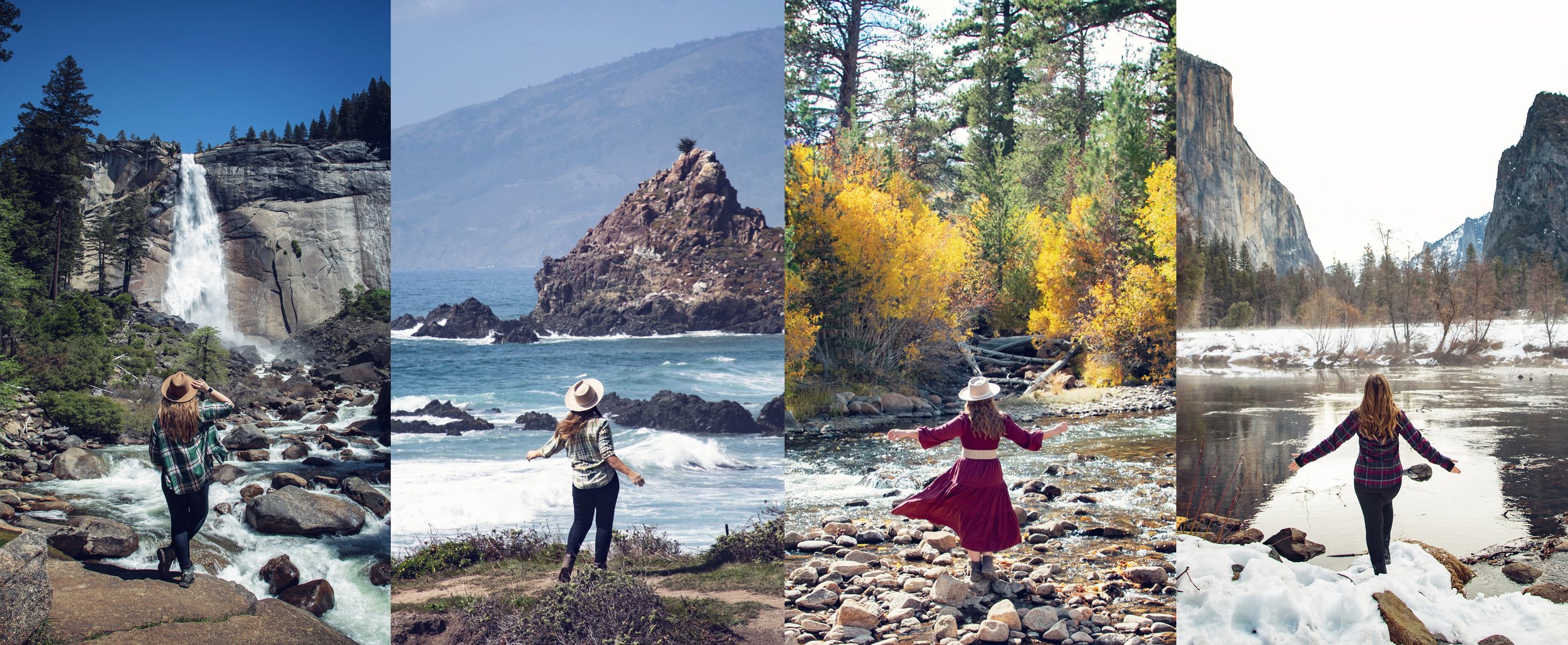






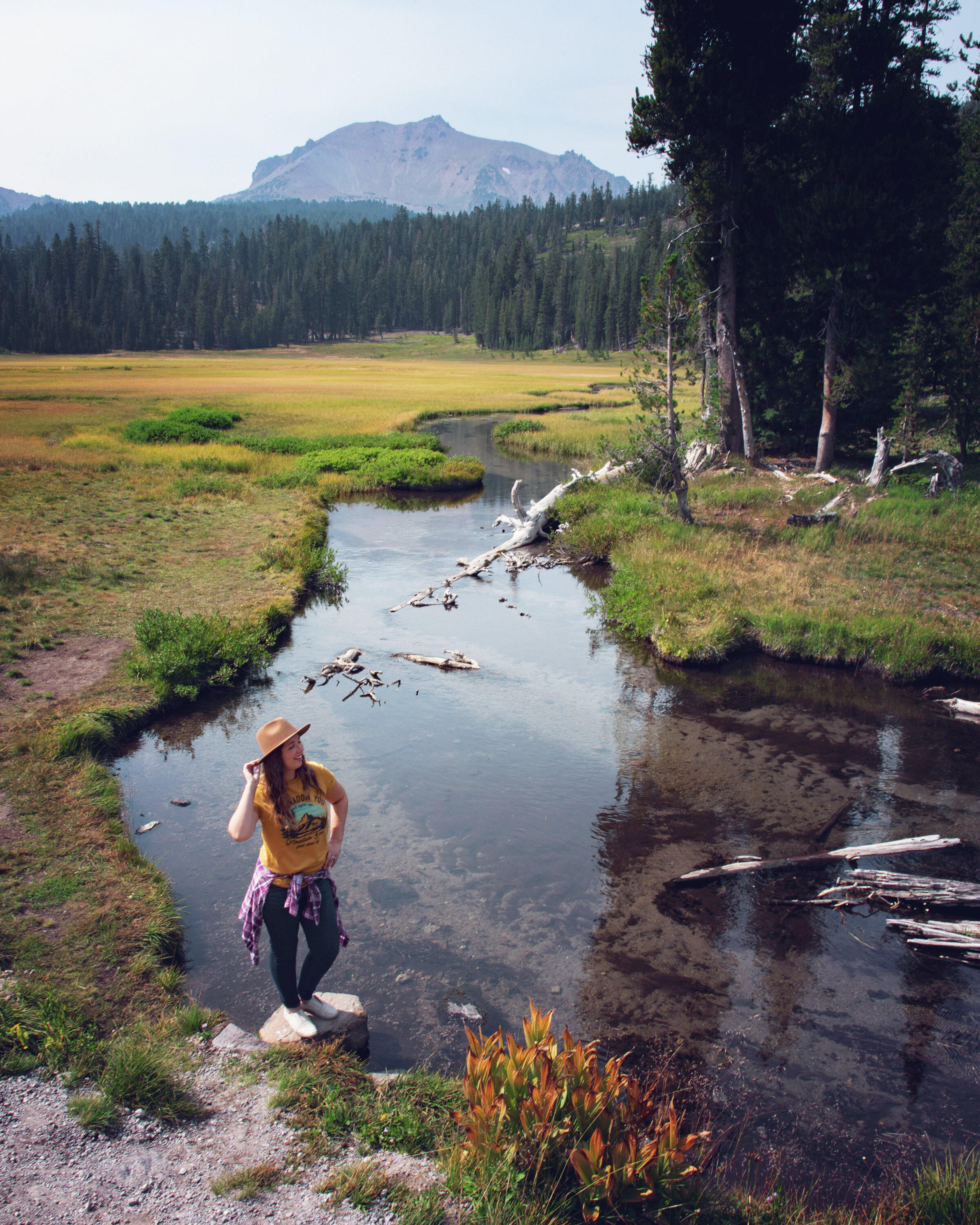
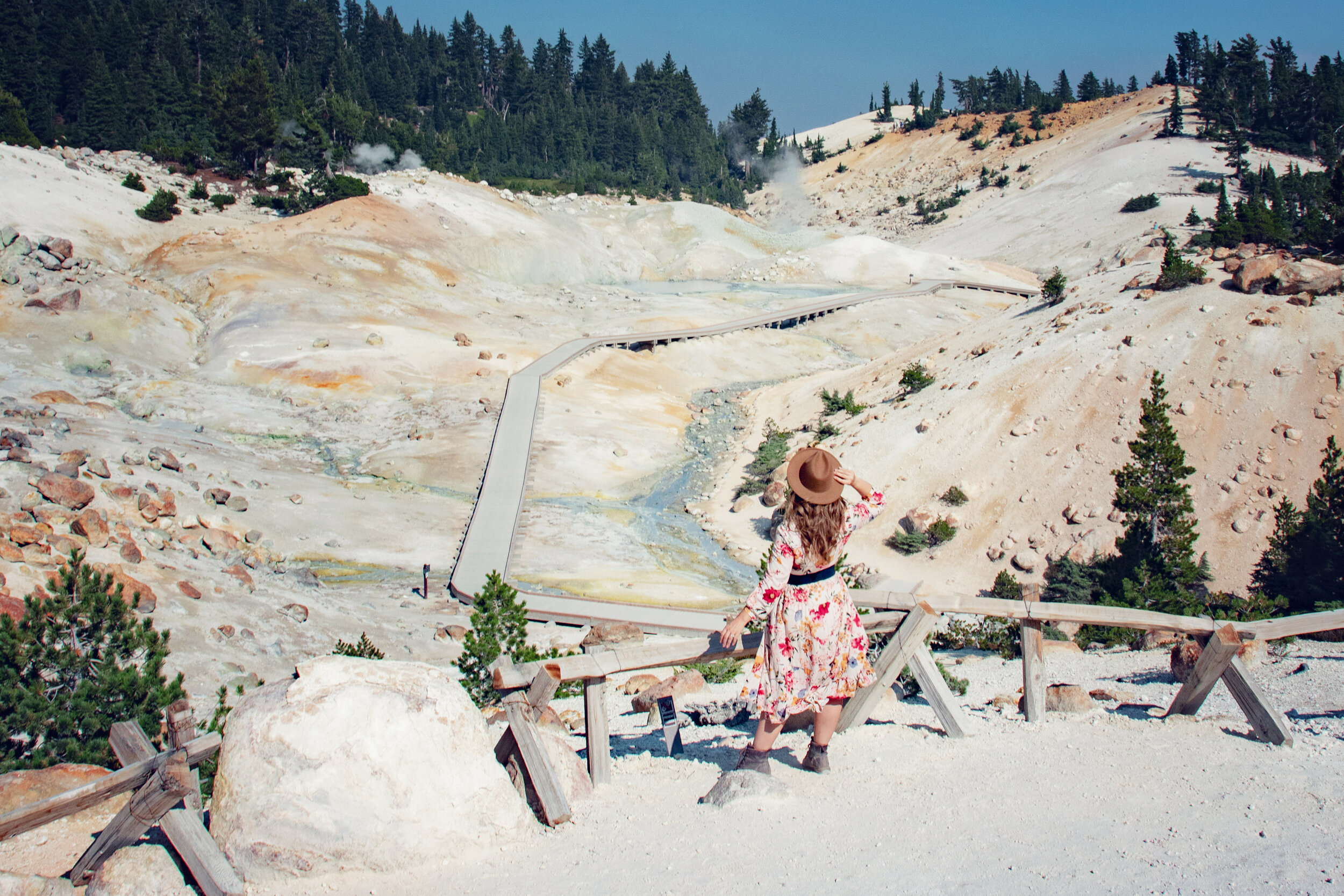
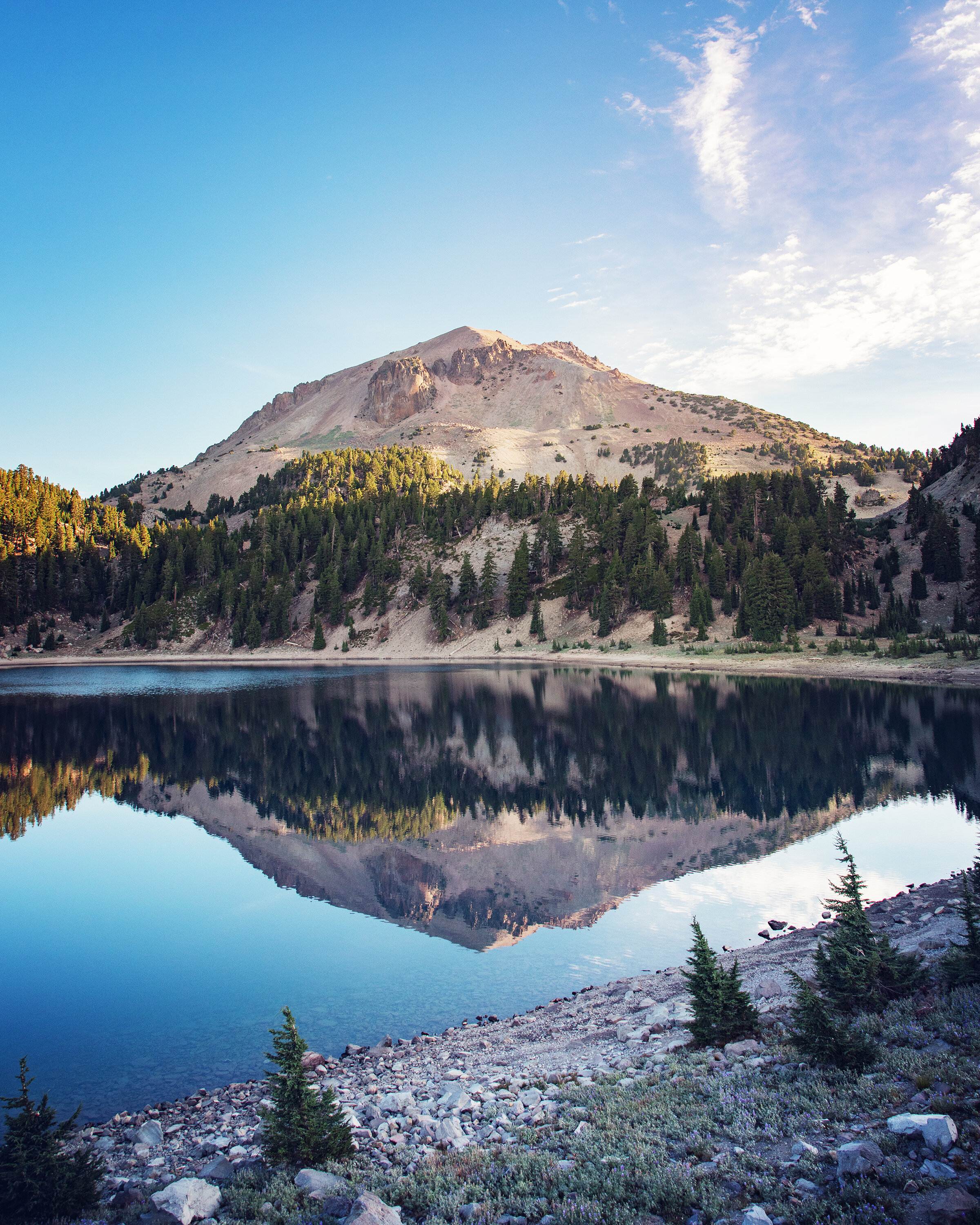

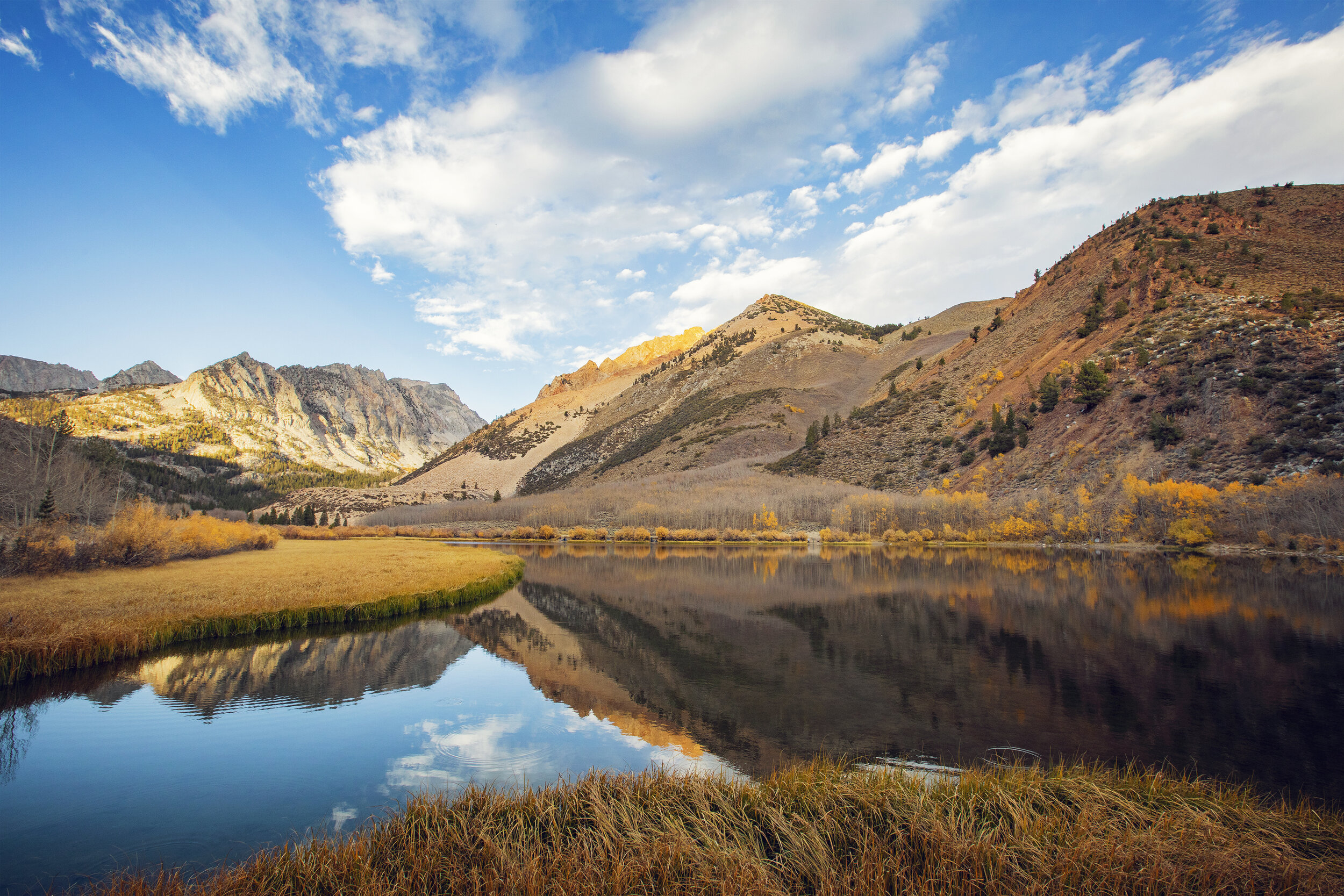





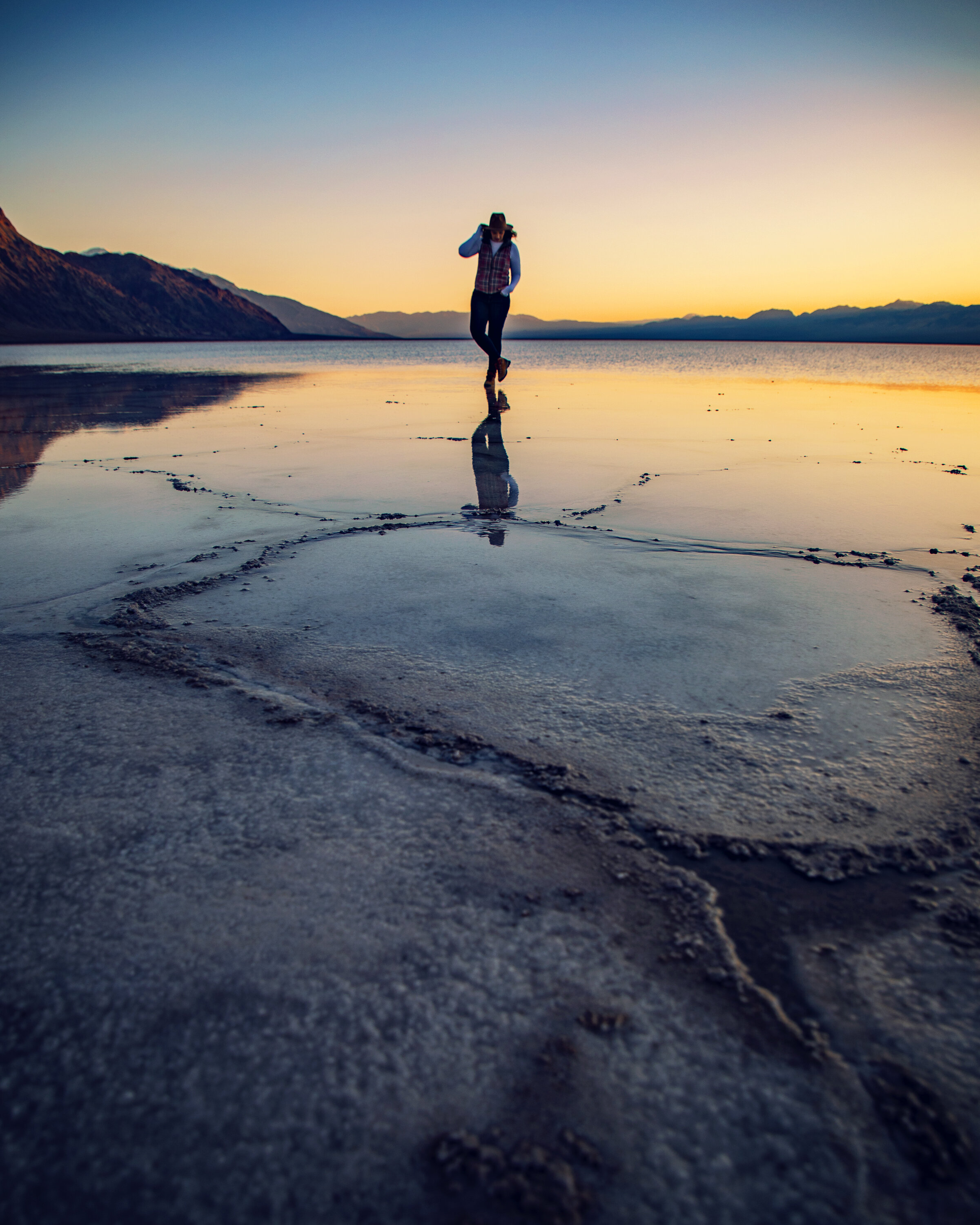

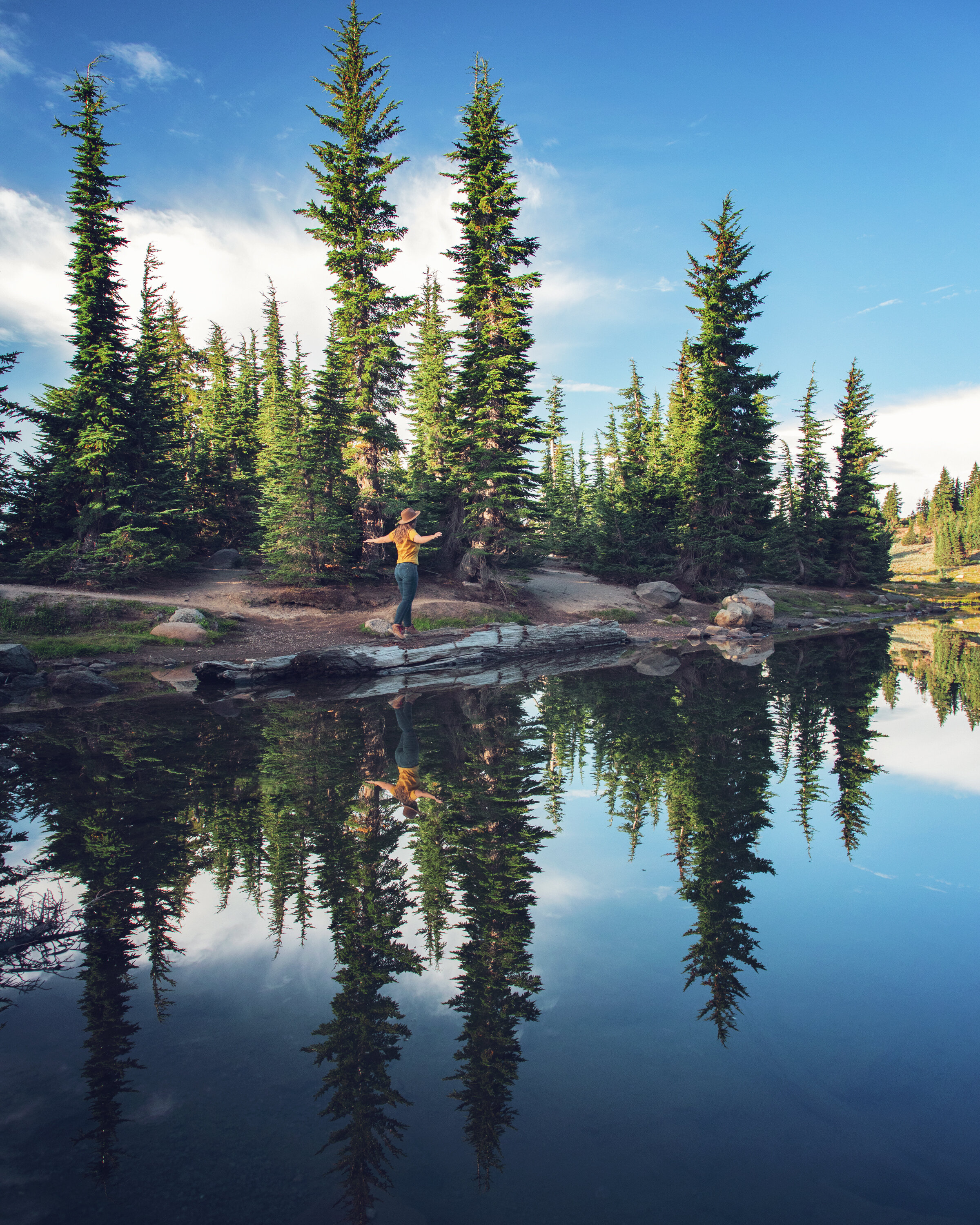








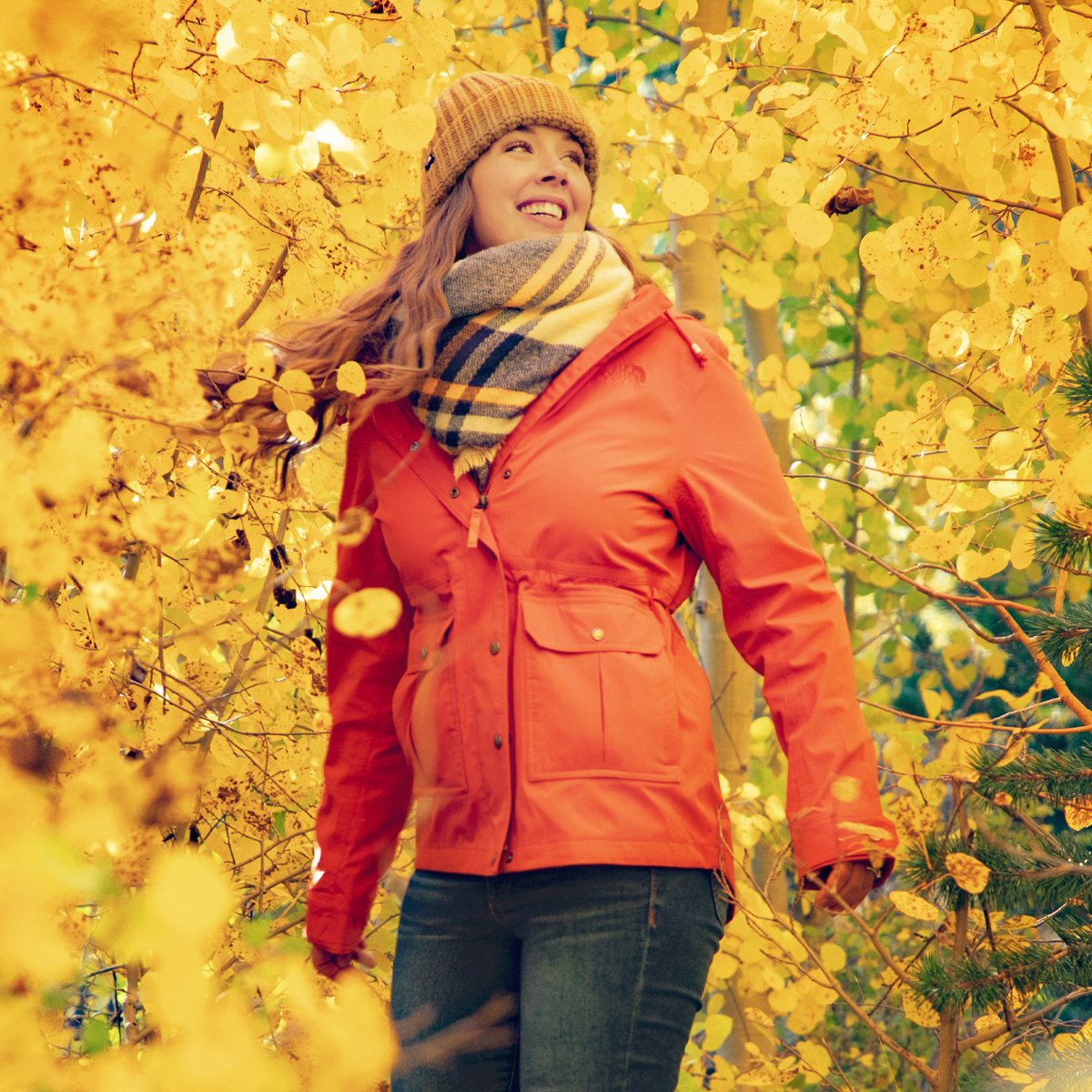


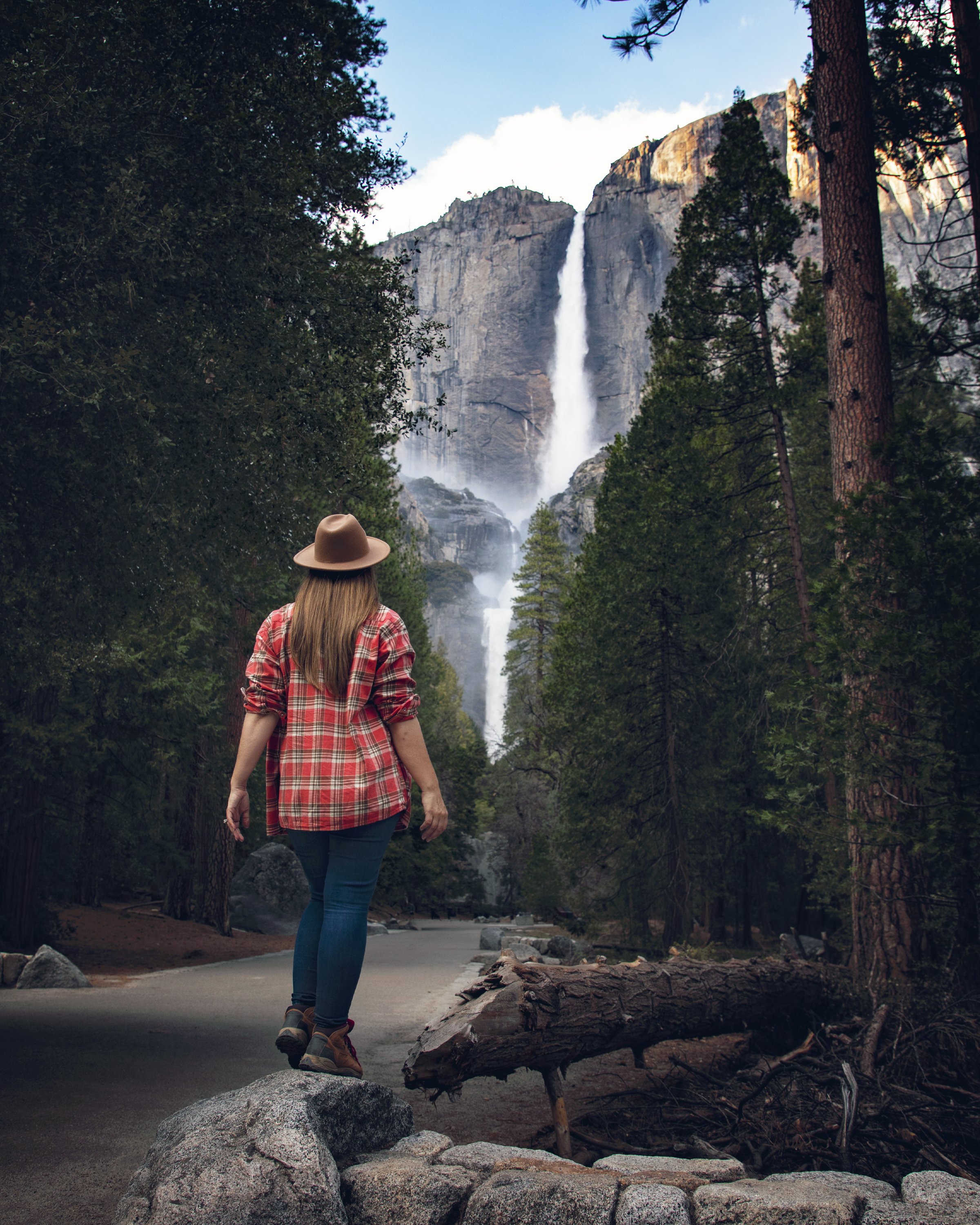



When is the best time to visit Yosemite National Park? This seasonal travel guide breaks down spring, summer, fall & winter in Yosemite—what the park looks like, pros & cons of each season, top places to visit, and expert tips to help you plan the perfect road trip. Find out the best time to see raging waterfalls, fall colors, spring wildflowers, abundant wildlife, or snow-capped granite peaks.